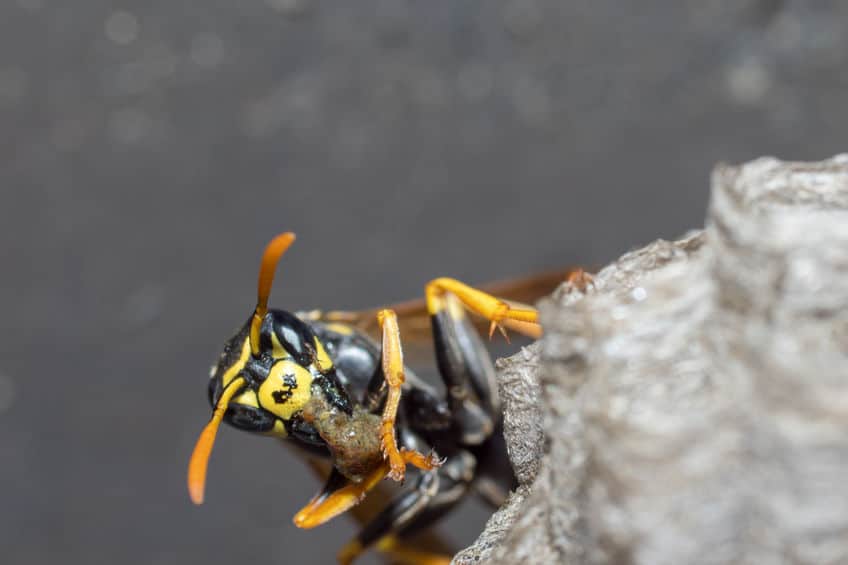You may have wondered if wasps have queens.
Social wasps have queens that are fundamental to the establishment and coordination of wasp colonies. The queens carrying sperm from the previous season must successfully hibernate before establishing a new colony alone. Queen wasps coordinate worker wasps through powerful pheromones. Once established the queen will not leave the nest again and will become the principal egg-layer.
let’s take a closer look at the role of the queen in a wasp colony.
The queen wasp establishes the colony
It is estimated that up to 99% of queen wasps do not survive to get up a colony. The queen wasp has no easy task. At the end of a season as winter sets in social wasps will die, that is except for the newly born queen wasps. The last task of the former queen will have been to lay the eggs to produce male and queen wasps. Once the males have mated with the new queens the male wasps will die, as will the workers and former queen.
Alone the new queens with the male sperm stored inside them will seek out a safe place to hibernate over the winter. The few that survive will go on to set up their own colonies numbering thousands of wasps. Read More
How long do queen wasps live?
Queen wasps live for up to one year. This gives them time to survive winter, found a new colony, and lay all the eggs needed for the new colony to thrive. Worker wasps by contrast may live around 1 month and male wasps whose only purpose is to mate may expect to live as little as 4 days.
What is the role of the wasp queen?
The wasp queen has no easy life. If she survives hibernation she will find a site in the early spring to start making a nest. She is alone at the start so must build the nest by herself. She will pick a site that has a source of wood, water, and nectar.
The wood will be vital as social wasps build the nests using wood pulp. She will scrape the wood, leaving visible scrape marks. The wood is chewed and made into a pulp which she uses to build her intricate nest. Read More

Once she has the beginnings of a nest she will lay her first eggs. She will need to hunt for insects to feed these first wasp larvae until they fully develop into wasps. Once the first wasps develop she now has help. These wasps will become her workers and will forage and defend the nest.
Once the queen has a workforce she will never leave the nest again. She must now become the principal egg layer with the task of producing thousands of eggs.
How does the queen wasp control the workers?
The queen relies on pheromones to co-ordinate the workers rather than by using any sort of dominant behavior. The worker wasps will instinctively play their individual roles for the benefit of the colony as a whole. Pheromones are also released by wasps that find a good source of for, or wasp under attack. These pheromones allow the wasps to communicate and will attract other wasps to food sources or to respond to a threat.
Worker wasps will surround the queen when they are in the nest. They have also been observed to lick her. Their principal role here seems to be to ensure her wellbeing, that is until her role is complete. It has been observed that worker wasps may even kill the queen towards the end of the season continuing to lick her body for up to 2 days after. (source: Spradbery)
Once the queen dies general unrest besets the colony and workers will leave the nest and roam outside the colony. Often this will bring them into contact with humans as they search out sugary foods. Read More.
How is a queen wasp chosen?
Any large female wasp can potentially be the next queen of a colony, but first, they must mate with a male and survive hibernation overwinter in order to be able to establish a colony.
It is thought that eggs produced, and larvae fed on high protein food will develop more, and as such the wasps will be larger and so more likely to be given the status of a queen. Most social wasps show no difference between queen and worker wasps, except for size, so the principal differentiator appears to be the amount and quality of food fed to the future queen wasps at the larvae stage. (Source: Spredbery)

